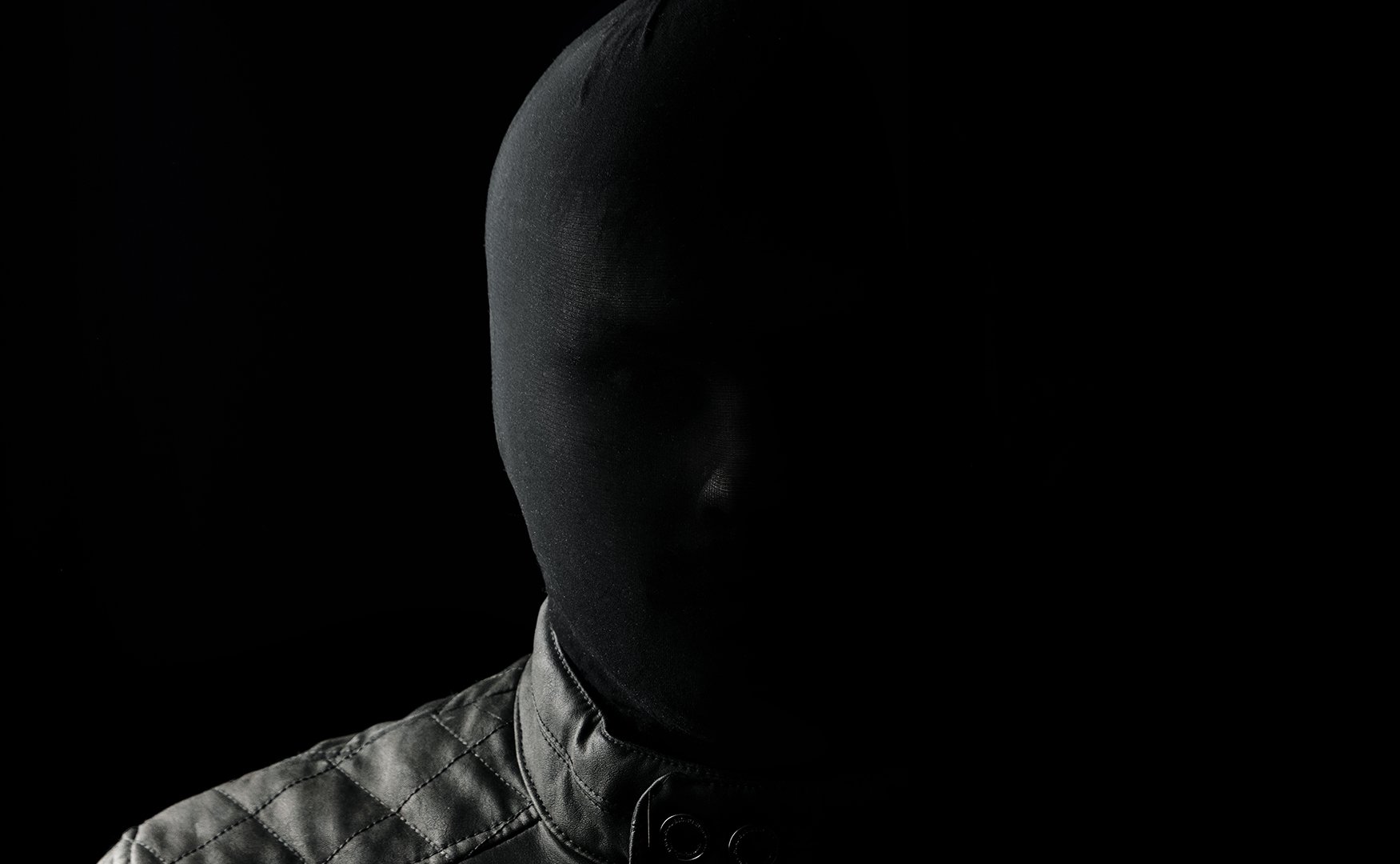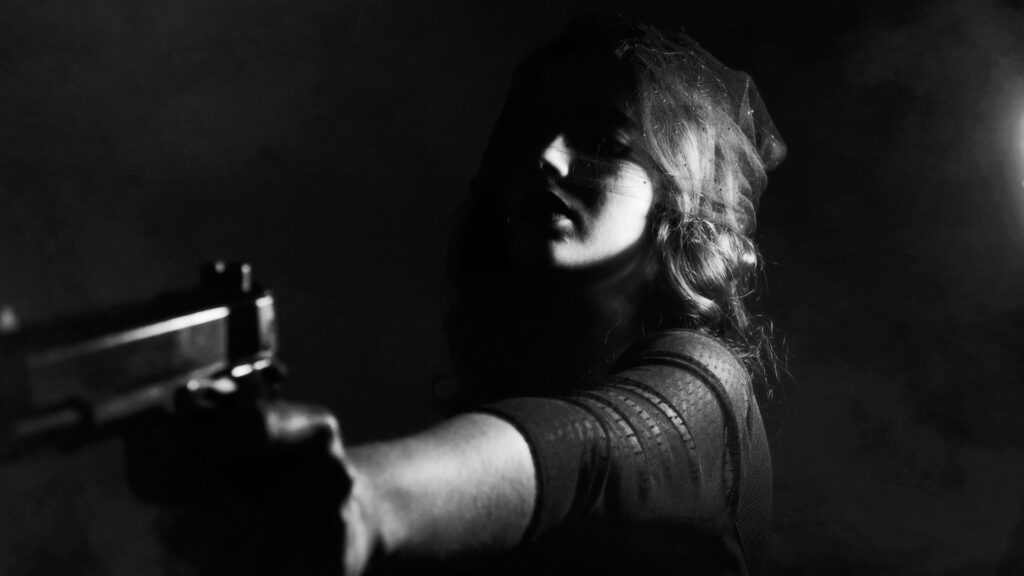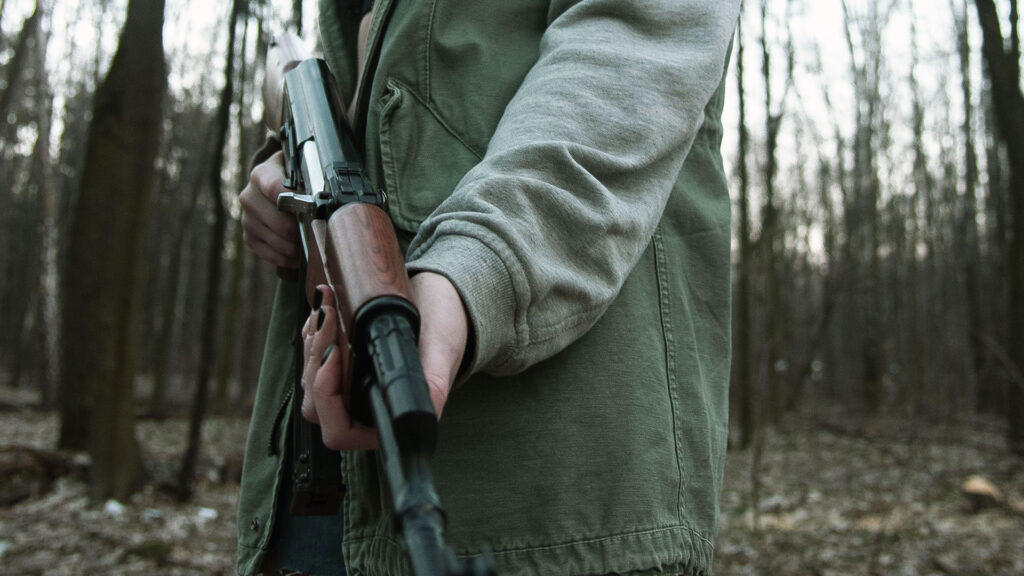
Before we dive into the mysterious “allure” of psychopaths and criminals, let’s take a step back for a moment. Because when you read something like “she was in love with Ted Bundy”, you immediately question it. However, when you hear something like “she likes to listen to true crime podcasts and drink wine”, that seems normal.
Why is that? Aren’t these two things kind of similar? Of course, not everyone listening to true crime stories is wanting to date a murderer...but the underlying fascination is there in both cases.
We can become very intrigued by violence. It’s human nature. We may be repulsed by it or saddened by it but we find it fascinating. We ponder over it and we watch documentaries on it and we ask experts why people behave the way they do.
Really, our fascination with serial killers and criminals isn’t just about confessing our love to people who have committed crimes - it’s practically woven into the fabric of our society and one of the most prevalent instances of eroticizing killers is the media.
This phenomenon isn’t that uncommon, with people fawning over Zan Efron’s Ted Bundy in the latest biopic, Evan Peter’s Tate Langdon in American Horror Story, or Penn Badgley’s Joe Goldberg the Netflix original show You...it’s everywhere.
Why are we so intrigued? Why do some people find serial killers sexy? Why is our media steeped in criminality and murder and why are true crime podcasts getting thousands upon thousands of downloads each month?
True crime media (podcasts and documentaries on streaming services like Netflix in particular) are often based on gruesome topics such as rape and murder, sometimes focusing on particular serial killers or crimes that have really happened (hence the name “true crime”).

From documentaries about real-life people to the internet’s obsession over stalker-killer boyfriend Joe Goldberg in the Netflix show “You”, the media has sensationalized and eroticized criminals for a very long time. While the popular streaming service actually issued a “there are many other hot men on Netflix, most of whom are not serial killers” disclaimer on Twitter, it doesn’t do much to quell the general public’s interest in hardened criminals.
Why are we obsessed with true crime media?
This type of media is alarmingly common. According to author and professor of Criminology Scott Bonn, true crime media triggers the most basic and powerful emotion in all of us, which is fear.
Another reason for our intrigue into the mind of serial killers is psychology. This is more where my viewpoint stems from. As someone with a mental health background, I am truly, irretrievably fascinated by the human psyche and the idea that the human mind can be twisted into committing these heinous crimes.
One of the defining qualities of a psychopath is “superficial charm and glibness”, which may explain why people who commit serious crimes are often referred to by friends and family as “not being the type” - they come off as smooth and charming, sometimes unassuming and innocent.
We may be intrigued by true crime media as a way of subconsciously preparing for the worst.
According to Bonn, some watch true crime documentaries and listen to podcasts as a way of facing their fears without any real element of danger. Without actually experiencing the danger or trauma associated with a violent attack, they can subconsciously develop different coping mechanisms for how they would handle themselves in that type of situation.
Perhaps you find the human psyche incredibly fascinating and want to know “what makes a serial killer.”
The idea that human beings can perform such gruesome and terrible acts can be a very confrontational thought for many people. We begin to assess how the human mind could be capable of being so cruel and violent. We begin to wonder if anyone around us experiences the detachment that many psychopaths experience and what turns someone whose brain is wired differently than ours to attack or kill.
Maybe it’s a sexual thing, after all.
I’ve long studied the impact of fear on sexual arousal and touched on it in articles like The Psychology of Breath Play and What is Consensual Non-Consent, even touching on the adrenaline that plays a role in the arousal of being robbed of sight during a sexual experience in this explainer piece about blindfolded sex.

The 2019 release of “Extremely Wicked, Shockingly Evil and Vile”, the highly anticipated Netflix movie starring Zac Efron brought to light something that many people hadn’t really known or paid much attention to - serial killers can be, to some people, incredibly sexy.
Regardless of who they got to play the titular character, there were always going to be people who watched the movie and found themselves feeling thrilled and aroused. If you don’t understand this phenomenon, it may be really difficult to even imagine that. This is a man who brutally murdered at least 30 women...how was that sexy?
While he was in jail, Bundy received fan mail from women all over the world, not to mention the fact that his wife, Carol Ann Boone, stayed by his side the entire trial and was said to truly believe he was innocent.
Bundy isn’t the first serial killer to get this kind of female attention, loyalty, and admiration. It’s said that H.H Holmes (also known as Herman Webster Mudgett, America’s first serial murderer) had multiple mistresses, girlfriends, and lovers, most of whom he would later kill. Richard Ramirez, Charles Manson, Jeffrey Dahmer...all of them received floors and prison fan mail (even underwear and nudes) from people who were infatuated with them despite their horrible crimes.
There’s a fetish for that, you know.
Hybristophilia (sometimes referred to as “Bonnie and Clyde Syndrome”), refers to sexual arousal that is triggered by a partner who is known to have committed a serious crime (rape, murder, etc).

According to Psychology Today, there are two types of hybristophiles: passive hybristophilia and aggressive hybristophilia.
Passive hybristophilia often means the person has no desire to participate in the criminal activity themselves but do become aroused and are sexually attracted to others who commit these offenses. This is where you might place the so-called “prison groupies” that send fan mail but nothing more.
Aggressive hybristophilia, on the other hand, is more hands-on - this is where people want to actively help criminals commit crimes (or flee from them), sometimes even participating in luring victims or covering up crimes their partner has committed.
The more common may be passive hybristophilia, and we see this in the sheer amount of criminals in prison for life who have not-so-secret admirers on the outside. Ted Bundy’s wife remained dedicated to his innocence until the day he died, Richard Ramirez married a pen-pal in 1996. They literally had the wedding inside the prison.
While you may initially be skeptical (and rightly so) of the “appeal” of criminals when it comes down to it, we’re all people. Yes, some people are monsters - but they are people. Their hearts beat, their blood pumps - they are human beings.
They are individuals whose brains are wired so differently than ours that we can’t help but wonder about them. They do things we couldn’t even begin to comprehend, vile, evil things that most of us don’t think are even possible. And that, right or wrong, is fascinating.
Psychopaths have less volume in their amygdala (where empathy and emotional regulation happens).
According to the Archives of General Psychiatry, when comparing psychopaths with non-psychopaths, researchers determined that there is actually less activity and volume in the part of the psychopath brain that controls emotions. Another study also found that psychopaths have less activity in the parts of the brain that process empathy.
Psychopathic tendencies can be present without the person actually being a psychopath.
Psychopathy is generally defined as a personality disorder where the person is unable to distinguish right from wrong, may often violate the law and rights of others, and have a total lack of empathy.

However, there is a difference between being a psychopath and showing psychopathic tendencies.
The most prevalent example of this difference would be the case of Beth Thomas.
Before I go any further into her history, I want to explain that Beth had an incredibly traumatizing childhood and parts of what I’ll explain below may be triggering.
Beth was sexually abused before she could even talk. She was eventually diagnosed with “Reactive Attachment Disorder” (RAD). There is an entire documentary about her, but you can watch this chilling interview (here) and you will see what psychopathic tendencies look like. She describes attempting to kill her younger brother, a desire to kill her birth parents, she details the abuse she suffered at the hands of her birth father and reveals a total disgust at being around other people.
But here’s the thing...Beth went through several different kinds of intensive therapy and ended up getting past her disorder to live a relatively typical life. She became a nurse and even won an award for her work in caring for newborns.
This is an exceptional case when psychopathic tendencies didn’t result in psychopathy. And both psychopathology and psychopathic tendencies are what many people find fascinating about diving into the violent part of the human psyche.
The idea that male serial killers are romanticized more than female serial killers isn’t a new idea, but is there any truth to it? In reality, this is a far more complex question - so let’s get right into it.

Women do tend to prefer true crime podcasts and shows over male viewers.
In a study conducted by Amanda Vicary, a social psychologist, it was revealed that the majority of people ingesting true crime media (podcasts specifically in this case) were females. Wine and Crime, a well-known true-crime podcast gets around 500,000 downloads per month and has an audience of over 85% female listeners.
Historically, male serial killers have been more fawned over by the media.
Whether it’s a Netflix documentary about Ted Bundy (where Hollywood heartthrob Zac Efron plays the titular killer) or simple headlines in local newspapers, for some reason or another, male serial killers seem to get much more media attention than female serial killers. And when the female serial killers do appear in the media, their nicknames often denote their gender (Jolly Jane and Tiger Woman, as examples) - whereas male serial killers are often given names that suggest brutality and violence such as the Kansas City Slasher or Jack the Ripper. These kinds of names often reinforce the stereotype of male serial killers being strong, fearful, aggressive, and sometimes even alluring to the general public.
Even the language we use to describe serial killers allows us to fetishize male offenders over female offenders. For example, you may see male killers described as charming or irresistible, whereas female killers may simply be described as quiet or unassuming.
Hybristophilia is more prevalent in women than men, research says.
Experts seem to agree that hybristophilia is more common in women. As for why this may be, there are a few theories: one is the allure of “reforming a bad boy”, the idea that you can somehow change or save them. Another theory as to why women may fall for criminal types is fame.
Celebrity status is attractive to people, and regardless of how you get there (be it a Hollywood award or being accused of serial murder), there are people who will latch onto that success and feed off of it. This article even suggests there may be a certain allure to romancing a criminal behind bars because of the added safety measures - they are bad, they have done bad things, maybe even killed someone, but they are in prison and can’t actually hurt you or your family.
Some mental health experts have compared the infatuation with killers to be a form of extreme fanaticism, which is an extreme devotion or zeal towards something or someone. Although every case can be different, there are some commonalities between women who experience fanaticism for serial killers or other criminals.

Most are in their 30s or 40s.
According to this Psychology Today article, most women who are attracted to killers are around 30-40 years old.
A belief in innocence.
Many of these women, according to CNN, truly do believe their boyfriends, lovers or husbands are in fact innocent of the things they have been accused of. They are delusional in the idea that the men they’ve fallen in love with haven’t committed the crimes they are charged with, even if they see evidence and proof.
The safe place.
According to Sheila Isenberg, author of the book “Women Who Love Men Who Kill”, many of the women she interviewed who were in relationships with prisoners were in it for the power and intimacy. Dating someone who is serving a life sentence often involves an intense level of courtship.
“He paints pictures for you, he writes poems for you, writes long letters. It’s an enormously romantic relationship,” Isenberg explains.
Many of the women she interviewed came from abusive childhoods and had lived through a fair amount of trauma. Isenberg ponders if this is what led them to a man behind bars, someone who couldn’t hurt them, who could court them, show them love, and intimacy without ever being around them to get hurt.
The “savior” complex...
By far one of the most common reasons people may end up falling in love with or becoming obsessed with criminal types (including serial killers) is the “savior complex.” This is essentially the idea that you are the one (perhaps the only one) who could rescue or save the “damaged” individual that you’re pursuing.
This also speaks to why being attracted to serial killers is predominantly a female thing, as the savior complex is slightly more common in females than males. As the “gentler” sex, women often see it as their job to “tame” dangerous men.
Many people who have this kind of background often find themselves in the health care, mental health care, or social work fields. Some people volunteer at a homeless shelter and some people date serial killers...the savior complex can explain both types of behavior even though one (of course) is more dangerous and disturbing than the other.
Aside from being romantically entangled with a killer, there are many other ways people get their kicks from hardened criminals and by far the most common place you’ll find this type of behavior is the internet.

#PrisonBae is a real thing.
Yes, I am serious. In the age of hashtags and trending topics, #PrisonBae (along with #FelonCrushFriday) on both Twitter and Instagram allows people to share photos of incarcerated criminals (some of which are murderers).
Judging “hot mug shots” is also a thing.
Along with these types of posts come the comment sections, where people usually ‘rate’ the felons, mostly by their mug-shots. This is a sort of “hot or not” game that is played in many of these hashtagged status updates.
The “art” of collecting serial killer memorabilia.
Serial killers have merch. Again, not kidding. From the Zodiac Killer to Ed Kemper to, you guessed it, Ted Bundy (and beyond), the amount of merchandise that’s out there to “promote” these criminals will blow your mind. Shirts, paintings, posters, bumper stickers (yes, really) and more can be found in places like SerialKillerShop.com.
Along with merch that has a killer’s face on it, you can also go about procuring an item they touched or owned by bidding in various auctions. Yes, again, really.
So - you can begin to see how the fetishization of criminals is pretty embedded in our society now, right?
Communities of people thriving off of each other.
Forums that are dedicated to certain criminals or serial killers also exist. There, you can discuss whether you believe they are innocent and share information you’ve gathered with other like-minded people. As open-minded as I am trying to stay about all of this, it’s starting to get a bit intense in here, isn’t it?
Regardless of your kink or fetish, there are healthy ways to express your desires, even if the behavior itself is unhealthy. Eradicating a fetish isn’t possible and any therapy that suggests it is possible or attempts to eradicate a fetish is, according to experts, also highly unethical.
When it comes to more taboo kinks and fetishes (both legal and illegal), there are always things you can do to better cope with the desires you’re having. Read more about the research done on “eradicating fetishes” here on Psychology Today.
The most important things to remember when dealing with unorthodox desires, kinks, and fetishes are:
How ever you may feel about the idea of being in love with or fetishizing a serial killer, let me leave you with this thought: in a world where we fetishize and romanticize violence in so many different ways (consciously or not), can we really be all that surprised when a woman wants to marry a mass-murderer or when someone wants to go to school with the Zodiac Killer’s sign sprawled across their sweater?